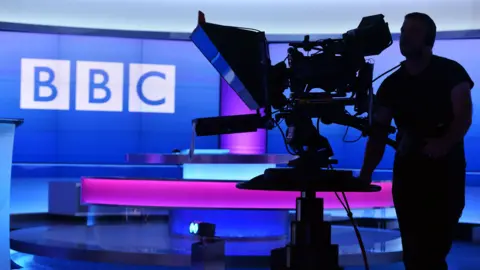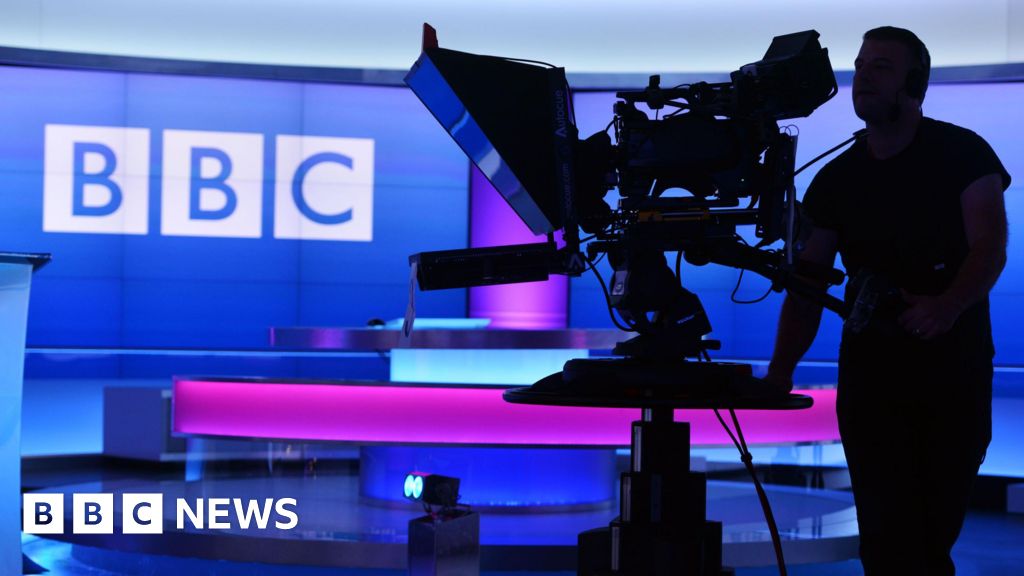 BBC
BBCThe cost of a TV licence is to rise by £5 to £174.50 in 2025, the government has announced.
Thousands more households are also to be offered support to pay the licence fee, the Department for Culture, Media and Sport (DCMS) announced on Friday.
The fee pays for BBC shows and services, and the government also said ministers will review the BBC’s charter to examine the corporation’s future funding.
Culture Secretary Lisa Nandy said there would be “an honest national conversation about the broadcaster’s long-term future”.
The £5 increase will come into force in April, and is significantly less than the £10.50 rise that was applied earlier this year.
The government said it would expand the Simple Payment Plan (SPP) scheme so 9,000 extra households facing financial difficulty can split the annual payment into more manageable fortnightly and monthly instalments.
The cost of a TV licence is due to increase in line with inflation each year until 2027, following an agreement made in 2022.
The government has returned to calculating the increase by using an annual inflation rate rather than a monthly one, which was used last year.
Meanwhile, the DCMS said it was is scrapping a review of the BBC’s funding model that was set up by the previous government, and is disbanding its expert panel.
Instead, the government will examine the issue of BBC funding as part of the charter review process, before the BBC’s current royal charter expires in 2027.
The charter sets out the terms and purposes of the BBC’s existence and normally lasts for about a decade.
The review “will incorporate independent expert advice, stakeholder views and public consultation to decide on how best to support the BBC’s long-term future”, a statement said.
Nandy said: “The BBC provides much-needed programming for households across the country, including children’s education, world-class entertainment and trusted news for all people in all parts of the UK. I want to see it thrive for decades to come.
“Through the Charter Review, we will have an honest national conversation about the broadcaster’s long-term future, ensuring the BBC has a sustainable public funding model that supports its vital work but is also fair and responsive to those who pay for it.
“In the short term, we are providing the BBC with funding certainty, while supporting thousands more households facing financial hardship to spread the cost of a TV licence.”
Foreign Secretary David Lammy has also announced an extra £32.6m for the BBC World Service in 2025-26.
BBC audiences challenge
Media watchdog Ofcom also published its annual report on the BBC on Friday, saying the corporation is struggling to reach some audiences in the UK.
It identified younger audiences and those from lower socio-economic backgrounds as areas for concern.
Although it faces competition from a growing number of digital outlets, Ofcom said the broadcaster is still the most- used media brand in the UK across TV, radio and online.
It added that audience trust remains consistent since then – with 61% of UK adults viewing the BBC favourably.
The report said there are certain sections of the audience who are less engaged with BBC content in general.
It stated that 78% of 16-34 year-olds and 79% of those from lower socio-economic backgrounds use at least one BBC service each week. These figures compared with 86% of overall UK adults.
Another area of concern was how much time per day young people are spending with the BBC.
It has seen a steady decline, from 75 minutes per day in 2017 to 46 minutes in 2023 – which is a bigger drop-off compared with the general adult population.
The report stated that the lack of engagement from younger audiences and those from lower socio-economic backgrounds “has been a longstanding issue for the BBC”.
It also asked that the BBC is more transparent about what impact its initiatives to attract these audiences are having.
There are also areas where Ofcom has identified that the BBC is doing well, including delivering high-quality news and current affairs content that is trusted by the audience.
The report highlighted recent national elections around the world and escalating international conflicts as being times where audiences have needed trusted news sources to turn to.
Additional reporting by Annabel Rackham.

